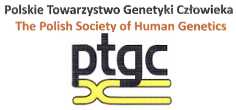Eye diseases
Eye diseases
Genetic testing in ophthalmology
More than 1,200 congenital eye diseases are currently known, some of which are polygenic. Their symptoms are often similar and overlap, therefore it is very difficult to make an accurate diagnosis on the basis of these symptoms.
The main group of hereditary eye diseases are the Inherited Retinal Dystrophies (IRDs), affecting up to 1 in 1,500 people.
They are a highly heterogeneous group of diseases and syndromes (at least 50 major types), with some dystrophies having symptoms caused by mutations (pathogenic - pathogenic changes) in one of many causative genes. In some cases, additional non-ocular symptoms are also present (syndromic retinal dystrophies).
In the case of several eye diseases, rapid diagnosis is very important. Only early detection and early treatment can prevent or stop the process of destruction of the optic nerve that takes place, for example, in glaucoma.
Age-related macular degeneration (AMD) is one of the most common causes of sight loss in developed countries.
Genetic testing provides carriers of genetic variants (so-called polymorphisms) that increase the risk of AMD with information that they have indications to limit sunlight exposure, introduce an appropriate diet and, if they smoke, to quit.
The study we are offering involves the analysis of genetic variants in 30 genes to establish a multi-gene risk score for AMD (using Next Generation Sequencing, or NGS).
It also assesses known polymorphisms that increase the risk of AMD in the CFH and ARMS2 genes (read more about the AMD-PRS test).
If an increased risk of AMD is detected, regular ophthalmological follow-up and the Amsler test (testing vision with a grid of horizontal and vertical lines) is advised. Effective treatment with VEGF inhibitors is available for patients with AMD.
Age-related macular degeneration (AMD) is one of the most common causes of sight loss in developed countries.
Genetic testing provides carriers of genetic variants (so-called polymorphisms) that increase the risk of AMD with information that they have indications to limit sunlight exposure, introduce an appropriate diet and, if they smoke, to quit.
The study we are offering involves the analysis of genetic variants in 30 genes to establish a multi-gene risk score for AMD (using Next Generation Sequencing, or NGS).
It also assesses known polymorphisms that increase the risk of AMD in the CFH and ARMS2 genes (read more about the AMD-PRS test).
If an increased risk of AMD is detected, regular ophthalmological follow-up and the Amsler test (testing vision with a grid of horizontal and vertical lines) is advised. Effective treatment with VEGF inhibitors is available for patients with AMD.
Thanks to the advances in Next Generation Sequencing (NGS) methods for genetic testing, it has become possible to implement a broad genetic test for the underlying genetic causes of retinal dystrophy and optic nerve neuropathy, covering all currently known genes associated with these eye diseases (almost 400 genes). It provides information on the mutations that cause the disease in more than 60% of cases and opens the way for personalised treatment.
Gene therapies are being developed to ‘fix’ the mutated genes responsible for the onset of the disease. The greatest successes have been reported in the treatment of Leber congenital blindness due to mutations in the RPE65 gene. Patients began to see and distinguish larger objects after receiving the therapy, which dramatically improved their quality of life. From January 2025, gene therapy for patients aged four to 35 years with Leber congenital blindness, caused by biallelic mutations of the RPE65 gene, is reimbursed in Poland.
Genetic testing is the future of ophthalmology. Through the use of genetic testing in medical practice, the doctor has a tool to make or confirm a diagnosis, to determine the possible course and risk of a disease in offspring, in certain diseases to propose a targeted treatment. It is also important to be able to prepare patients for life with the disease (i.e. choosing the right school, activities, etc.).
Our offer includes genetic testing for the following entities:
- Albinisms and hypopigmentations
- Refsum disease
- Corneal dystrophy
- Hereditary retinal dystrophy (including retinal pigmentary degeneration and Leber congenital blindness)
- Optic nerve atrophy
- Alagille syndrome
- Alport syndrome
- Marfan syndrome
- Stickler's syndrome
- Age-related macular degeneration (AMD)








